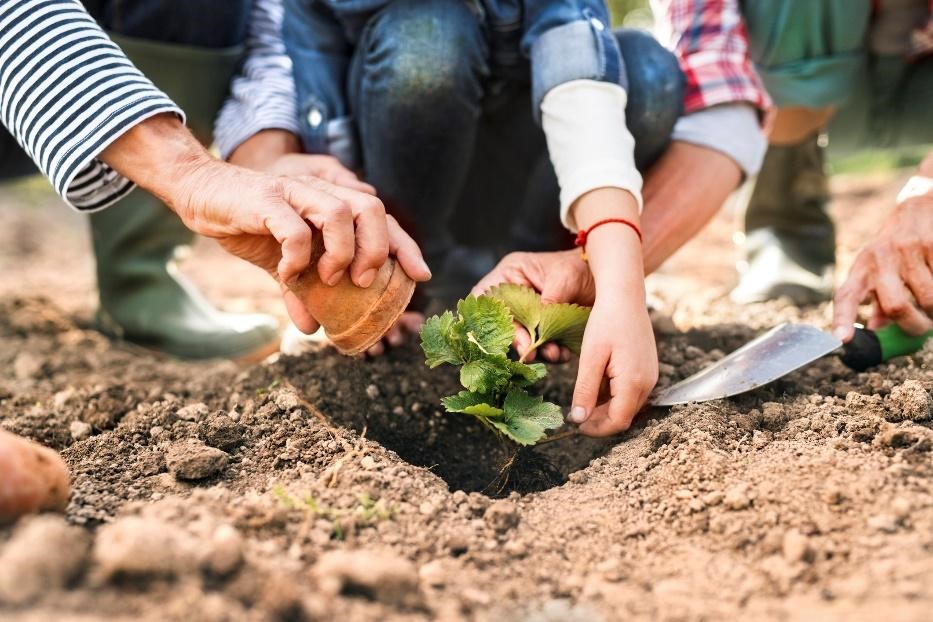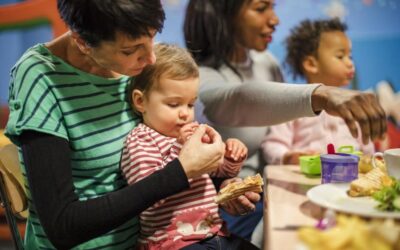Expand the nutritional and educational horizons of your children by incorporating gardening into the curriculum
Nutrition is an important part of a child’s physical growth and learning to nurture living things is essential to social and emotional development. The act of gardening encompasses nutrition, nurturing, science, sensory exploration, and an appreciation for the great outdoors, making it an ideal activity for young children.
As horticulturist and writer Gertrude Jekyll said, “A garden is a grand teacher. It teaches patience and careful watchfulness; it teaches industry and thrift; above all it teaches entire trust.”
These character traits, combined with an appreciation for healthy food, caretaking, and science, are invaluable in the life of a young child.
Gardening doesn’t have to be an expensive or complicated endeavor. Take the time to start a simple garden with the children in your care, and watch them grow along with whatever you’ve planted.
Tips for nurturing nutritional literacy
- Plan together. Encourage interest by asking children about their favorite fruits and vegetables. One fun way to do this is by researching which garden plants grow well in your climate and then bringing in a variety of samples to enjoy as a snack before having a classroom vote. Strawberries, blueberries, tomatoes, green beans, cucumbers, snap peas, and cherry tomatoes are all options worth researching. Herbs are also easy to grow and act as interesting flavors for experimental eating. Make the planning part of the excitement.
- Start small. You don’t need farmland to begin this endeavor. Start with beans in small cups or tomato plants in pots. A small window garden can introduce children to early gardening concepts such as healthy soil, sunlight, and water. As interest grows, you can expand to an outdoor plot in the form of a raised bed or container garden.
- Use tools. Children love to be involved, and tools are a great way to allow for hands-on participation. Have child-sized shovels, gloves, hoes, and watering cans available, and incorporate responsibility for these items as part of the lesson.
- Consistency counts. As with many things in life – including children – gardens flourish with regular time and attention. Build a regularly scheduled time to tend to the garden into your daily or weekly routine. Pull weeds, water seeds, measure plants, fertilize, observe and record growth, and harvest the fruits of your labor as necessary.
- Celebrate harvests. It’s much easier to get children to experiment with new tastes and food experiences when they’ve been invested in the outcome since the beginning. Try age-appropriate foods raw during snack time or make simple recipes to introduce cooking to the learning process.
- Involve parents. Explain the activity and the intent of the lesson to parents so that they can contribute at home. Ask them to incorporate new foods or send home seeds that have started to grow in a Styrofoam cup so that children can practice their caregiving skills on an individual basis.
Children are naturally curious and experience tremendous developmental growth in a wide range of categories during early childhood. Gardening is a lesson that’s easily accessible, incorporates many different important skills and learning opportunities, and encourages an appreciation of both nature and nutrition. Explore the great outdoors and contribute to healthy eating habits that will hopefully last a lifetime.
The Virginia Infant & Toddler Specialist Network helps improve the quality of care for infants and toddlers through extensive resources, services, and education for caregivers. Learn more about how we can help you improve the standard of care.




